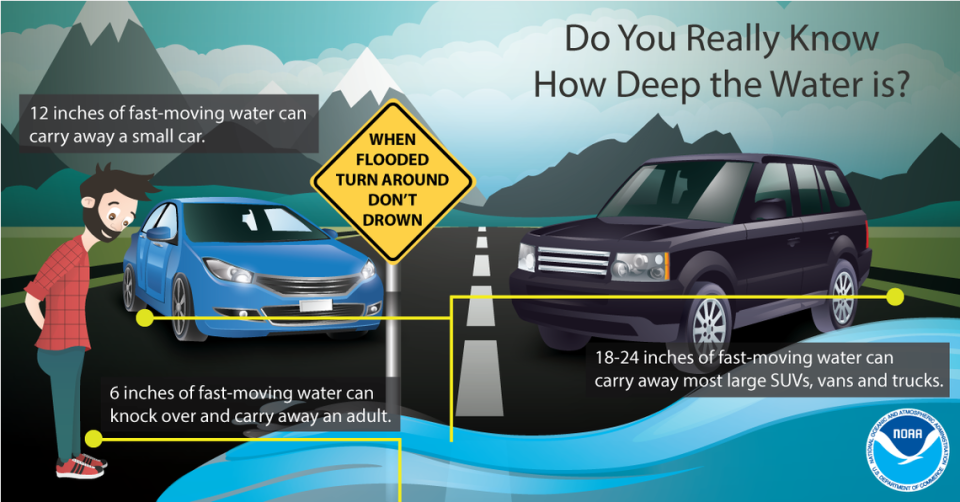High winds & strong storms in Macon. Stay safe with these National Weather Service tips
Heavy rain, high winds, lightning and the potential for tornadoes.
Macon, Georgia has seen brighter days, no doubt.
The National Weather Service issued a Hazardous Weather Outlook for several Middle Georgia areas, including Bibb, Monroe, Houston and more.
The Outlook covers several threats such as a tornado watch, high wind warning and flood watch.
So, how can we keep safe with so many possible threats?
Read on for severe weather tips from the National Weather Service:
Tornado Safety Tips
A Tornado Watch means the weather conditions favor thunderstorms that can create tornadoes.
A Tornado Warning means to seek shelter immediately because one has been spotted or will occur shortly.
Stay Weather-Ready: Continue to listen to local news or a NOAA Weather Radio to stay updated about tornado watches and warnings.
At Your House: If you are in a tornado warning, go to your basement, safe room, or an interior room away from windows. Don’t forget pets if time allows.
At Your Workplace or School: Follow your tornado drill and proceed to your tornado shelter location quickly and calmly. Stay away from windows and do not go to large open rooms such as cafeterias, gymnasiums or auditoriums.
Outside: Seek shelter inside a sturdy building immediately if a tornado is approaching. Sheds and storage facilities are not safe. Neither is a mobile home or tent. If you have time, get to a safe building.
In a vehicle: Being in a vehicle during a tornado is not safe. The best course of action is to drive to the closest shelter. If you are unable to make it to a safe shelter, either get down in your car and cover your head, or abandon your car and seek shelter in a low lying area such as a ditch or ravine.
Flood Safety Tips
The NWS says to “turn around, don’t drown” when you come across flooded roads today and the rest of this week.
Here are some other things to know about flash floods:
Flash floods occur suddenly and usually within hours of excessive heavy rainfall.
Flash floods become raging torrents of water, ripping through neighborhoods, streets, valleys, etc. sweeping away whatever is in their path.
A flash flood warning is issued when flash flooding is happening or will happen soon. It means that roads will be flooded and some homes or businesses may flood.
Fast-moving water a foot deep can carry away a small car.
Six inches of fast-moving water can knock over and carry away an adult.
If fast-moving water is 18-24 inches deep, it can carry away most large SUVs, vans and trucks.

The NWS also has several safety tips for flash flooding:
Remain alert and move to higher ground
Stay off the roads if possible and remember to “turn around, don’t drown” if you run into flooded roads
Stay away from downed power lines
Severe Storms Safety Tips
Lightning is hotter than the surface of the sun and can reach temperatures around 50,000 degrees, according to the National Weather Service.
“When Thunder Roars, go indoors.”
Stay Weather Ready: Continue to listen to local news or a NOAA Weather Radio to stay updated about severe thunderstorm watches and warnings.
At Your House: Go to your secure location if you hear a severe thunderstorm warning. Damaging wind or large hail may be approaching. Take your pets with you if time allows.
At Your Workplace or School: Stay away from windows if you are in a severe thunderstorm warning and damaging wind or large hail is approaching. Do not go to large open rooms such as cafeterias, gymnasiums or auditoriums.
Outside: Go inside a sturdy building immediately if severe thunderstorms are approaching. Sheds and storage facilities are not safe. Taking shelter under a tree can be deadly. The tree may fall on you. Standing under a tree also puts you at a greater risk of getting struck by lightning.
In a Vehicle: Being in a vehicle during severe thunderstorms (when there is no tornado warnings or sightings) is safer than being outside; however, drive to closest secure shelter if there is sufficient time.
Have more questions? Comment below or email me at cmadden@mcclatchy.com
Best new Macon restaurant of 2023? Here’s who you chose as the winner of our bracket
Will Georgia see snow or icy weather this winter? Here’s what Farmers’ Almanac and NWS predict

